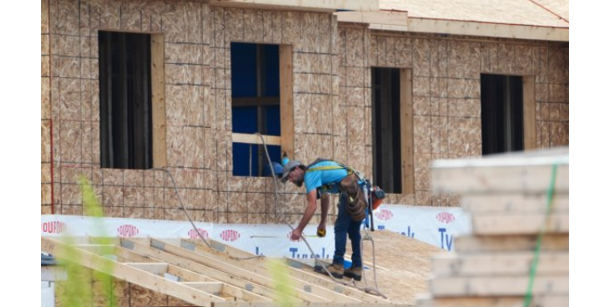1 in 5 homebuilders are nixing projects amid high rates
Many Canadian homebuyers waiting patiently for construction to finish on their pre-sale unit are being met with cancellation notices from developers. The building environment is souring — leaving some unhappy customers scrounging to get their deposit, or more, in compensation.

Many Canadian homebuyers waiting patiently for construction to finish on their pre-sale unit are being met with cancellation notices from developers. The building environment is souring — leaving some unhappy customers scrounging to get their deposit, or more, in compensation.
Real estate lawyers in some of Canada’s busiest housing markets who spoke to Global News say you might not get much more than you put into a pre-build, depending on what your contract says.
The Canadian Home Builders’ Association said in a report released last week that high construction costs and rising interest rates are hurting developer confidence in the market. Two out of three builders tell Canadian Home Builders’ Association that they’re building fewer units, while 22 per cent of developers have fully cancelled projects in recent months.
The rights of buyers are similar in many jurisdictions, but because the real estate market is regulated provincially, a buyer in Vancouver might have a different legal standing from someone buying in Toronto.
Bob Aaron, a Toronto-based real estate lawyer, says the obligations a developer has to a buyer are outlined in the Tarion addendum, a compulsory attachment for a purchase agreement in Ontario.
“There are certain rights in there that give the builder the option to terminate the agreement,” Aaron tells Global News.
The Tarion addendum will typically include caveats for the developer to escape the contract, Aaron says, such as not being able to secure zoning approval or building permits, or failing to achieve a certain sales target for the project.
Developers can also say they failed to get financing for the project, he adds, a possible consequence of rising interest rates and a changing borrowing environment.
But Aaron says it’s easy for developers to use the financing excuse as an easy out from a project that is no longer as profitable, as it might’ve been when they sold the unit. There’s no simple way to find out if the builder is being genuine, he says.
When a buyer agrees to purchase a pre-sale home, they’ll typically put down a deposit on the project and pay the full amount at completion.
In Ontario, this amount is typically put into a third-party trust. Aaron says that buyers can expect to get that down payment back in the event of a cancellation, and potentially interest accumulated on the amount as well, depending on the specifics of the agreement.
In most cases in B.C., Bindra says buyers are entitled to get their deposit back on the project but not much else.
It’s possible to sue a developer for damages, he says, if a buyer is looking to recoup the “opportunity cost” on the money that sat without interest for the length of the agreement
But in practice, unless the disclosure statement or purchase agreement contains language including deposit interest in the buyer’s remedies, Bindra says a legal case can be difficult for an individual facing down a deep-pocketed developer.
Some buyers could even sue the developer to attempt to get them to live up to their end of the bargain and finish building the unit, but Bindra says these outcomes are especially rare.
“Their contracts are fairly bulletproof and developer-friendly, and often the most common remedy is the buyer just gets the return of the deposit,” he says.
Developers might not cancel a build outright, instead delaying the completion date if they think the project is salvageable.
In B.C., Aman says builders could extend the closing multiple times, and typically there’s no compensation associated with such moves. Buyers can walk away, cancelling the contract within seven days after the amendment is filed, receiving their deposit back in full.
Ontario buyers have 30 days to do so in the same circumstance, Aaron notes. In Ontario, if a buyer opts to remain in the contract, they’ll be entitled to delayed occupation compensation, which works out to $150 per day to a maximum of $7,500.
If the reason for the holdup is out of the builder’s control — a strike among construction workers, for example — then Aaron says a developer can “stop the clock” on the compensation counter due to “unavoidable delays.”
The best thing a prospective buyer can do is to get a purchase agreement reviewed by a lawyer before signing on the dotted line to avoid surprises if a project doesn’t cross the finish line.







